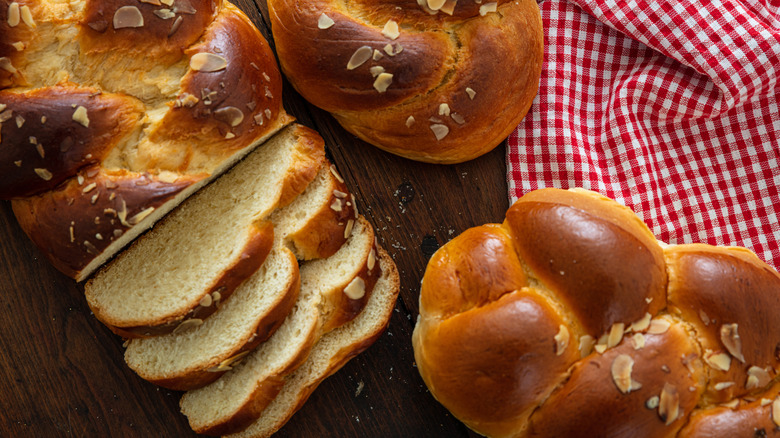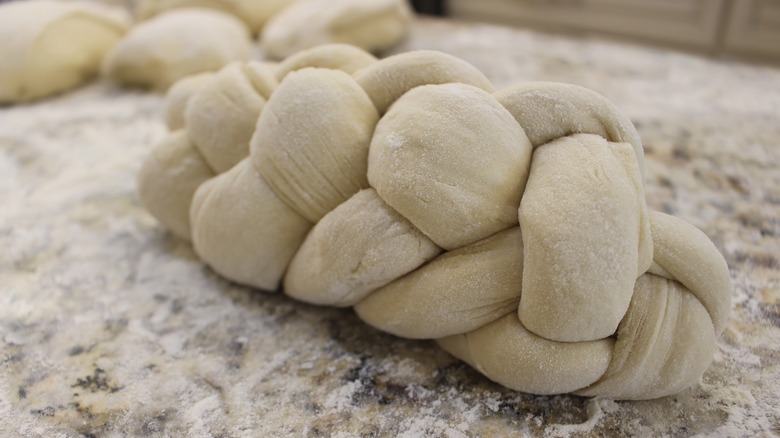Challah Vs. Brioche: What's The Difference?
There's nothing like a big plate of French toast absolutely dripping in maple syrup, and if you're looking to kick off your morning in this kind of a delirious sugar haze, you'll almost certainly need to head off to the store for one of two types of bread. Nearly every French toast recipe calls for either challah or brioche as the base, but most of them leave the choice up to you, the home cook. The constant equating of these two breads, and many recipes suggesting you can swap one for the other, have led many to consider them virtually the same thing.
Their similarities are certainly hard to ignore. For starters, both challah and brioche are "enriched breads," which puts them in a distinct class of baked goods. As Food52 explains, "enriched," in the context of bread, means that the dough is made with some combination of eggs, sugar, and/or dairy. It doesn't need all three (in fact, this is key to the distinction between challah and brioche), but it needs something "rich."
The key difference is dairy
Challah is an icon of Jewish bakeries and is closely connected to religious rites. According to Modernist Bread, the word originates in the Torah, wherein the faithful are instructed to set aside a portion of the dough from each loaf of bread they bake and donate it to local priests. However, the bread being eaten in these ancient times was a far cry from modern challah, and likely resembled something like pita bread. The New York Times reveals that the challah we know developed among Ashkenazi Jews in Central and Eastern Europe. Brioche, meanwhile, emerged in France, with Bakerpedia noting its earliest recorded occurrence was in 1404.
The key difference between challah and brioche, per Masterclass, is that brioche is typically made with all three enriched ingredients we mentioned before (eggs, sugar, and butter), but challah often replaces the butter with oil to keep kosher. Chabad explains that, under kosher law, meat and dairy cannot be eaten together. Therefore, anyone keeping kosher would not be able to eat brioche with a meat course, an issue you don't have to worry about with dairy-free challah.

